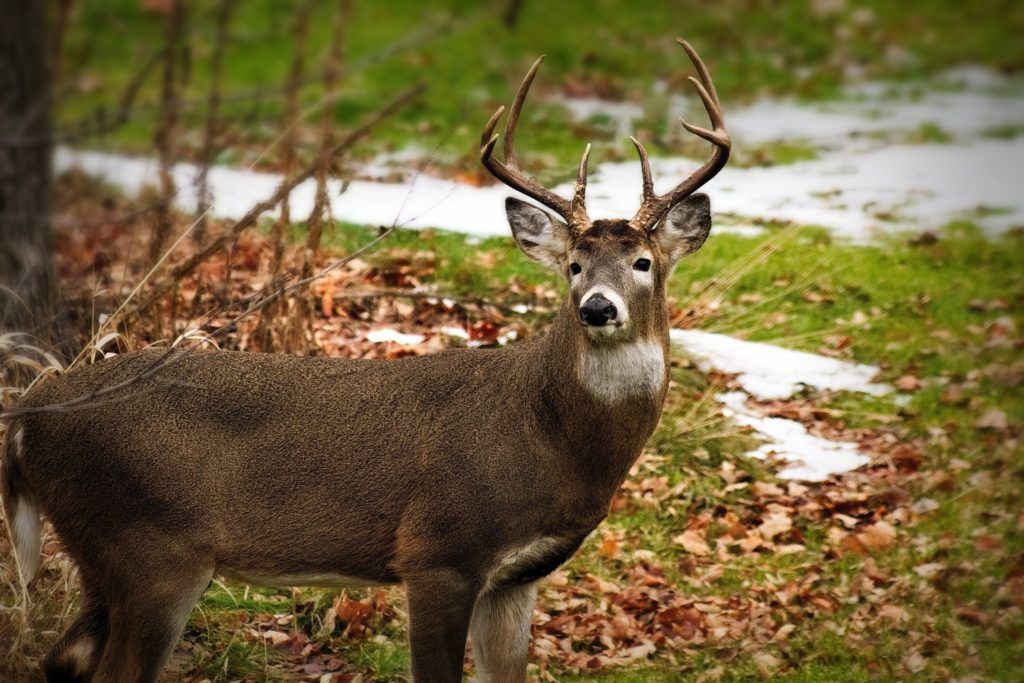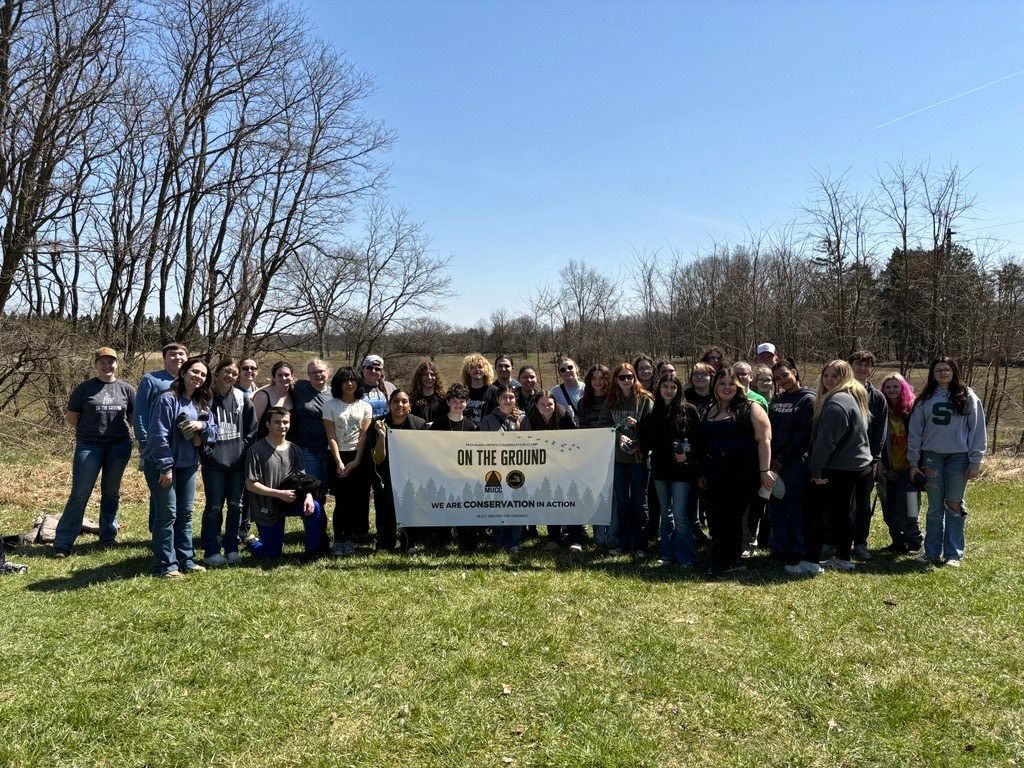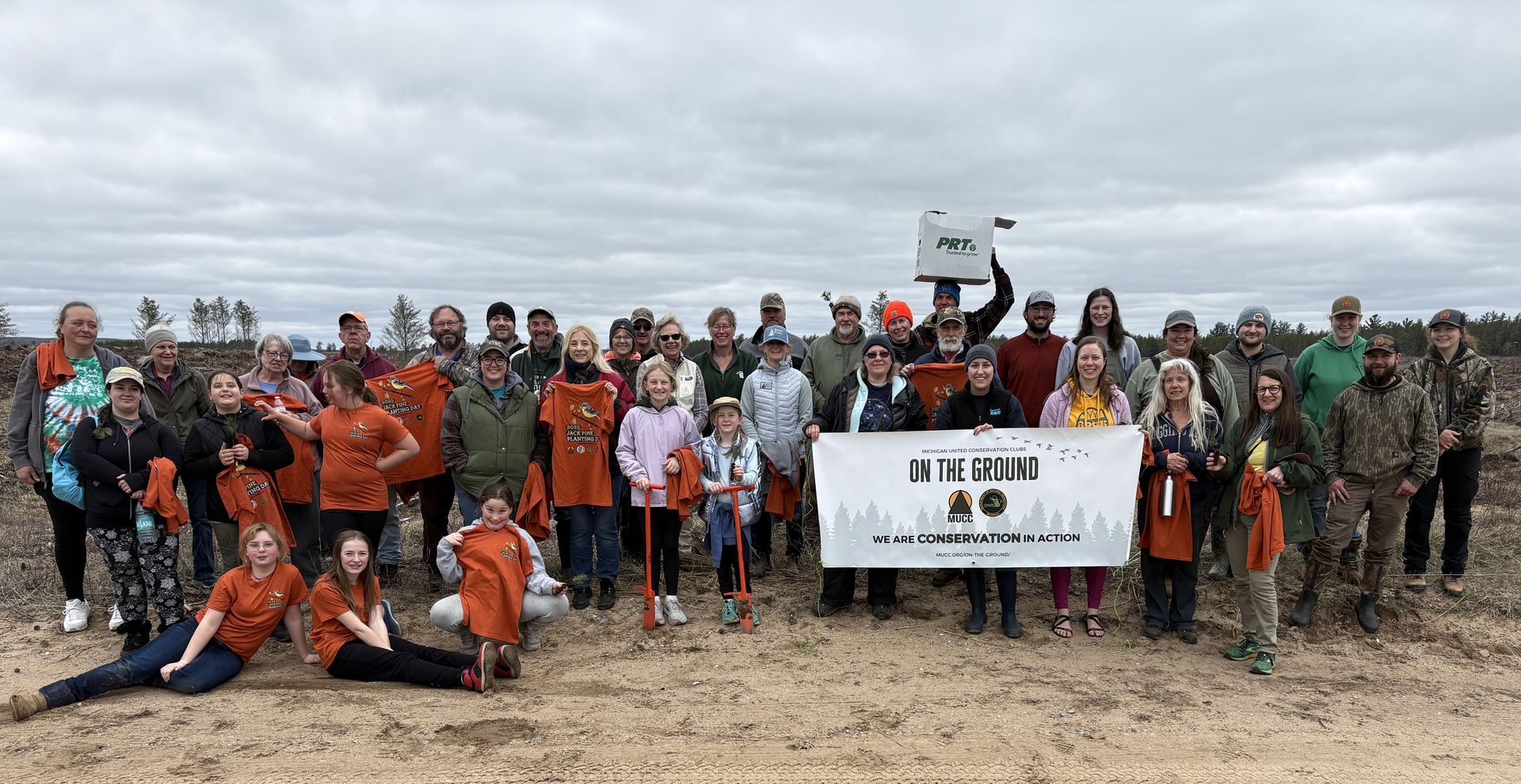Take the OTG Volunteer Survey Today
With more than 3,300 volunteers and more than 165 wildlife habitat improvement projects completed, the On the Ground (OTG) program has impacted wildlife habitat on public land throughout Michigan. As we look back and review the previous habitat improvement field seasons, we are compiling data and reports to build a comprehensive picture of the OTG program’s impact and success.
One component we would like to include in the report is survey results from OTG volunteers that explain why they chose to volunteer with the OTG program and other information about their conservation interests. This data can help the OTG program better understand the needs of volunteers while simultaneously providing information about how to grow the program and have a greater impact on wildlife habitat across the state.
We appreciate all of the conservationists that have joined us in the field improving habitat for Michigan wildlife. With your participation in this survey, we hope to capture the unique volunteer experience the OTG program provides for participants and how we can grow as a wildlife habitat volunteer program.
If you’ve participated in an OTG event and would like to share your experience, please visit the Google Form survey page HERE . Additionally, if you would like to learn more about the OTG program, please visit mucc.org/on-the-ground .
The post Take the OTG Volunteer Survey Today appeared first on Michigan United Conservation Clubs.
Recent Posts



